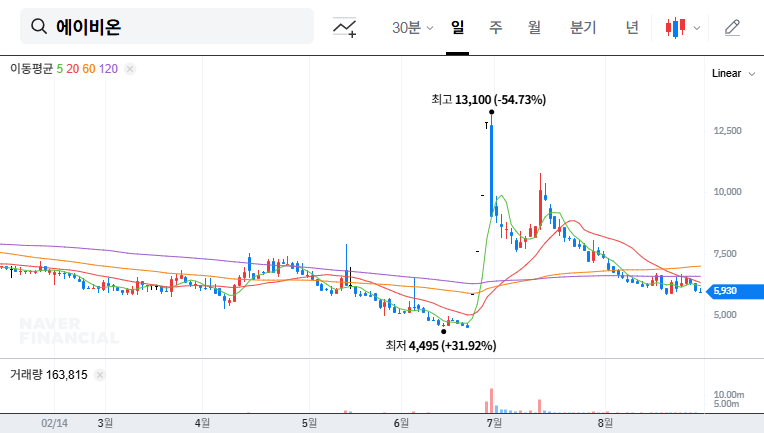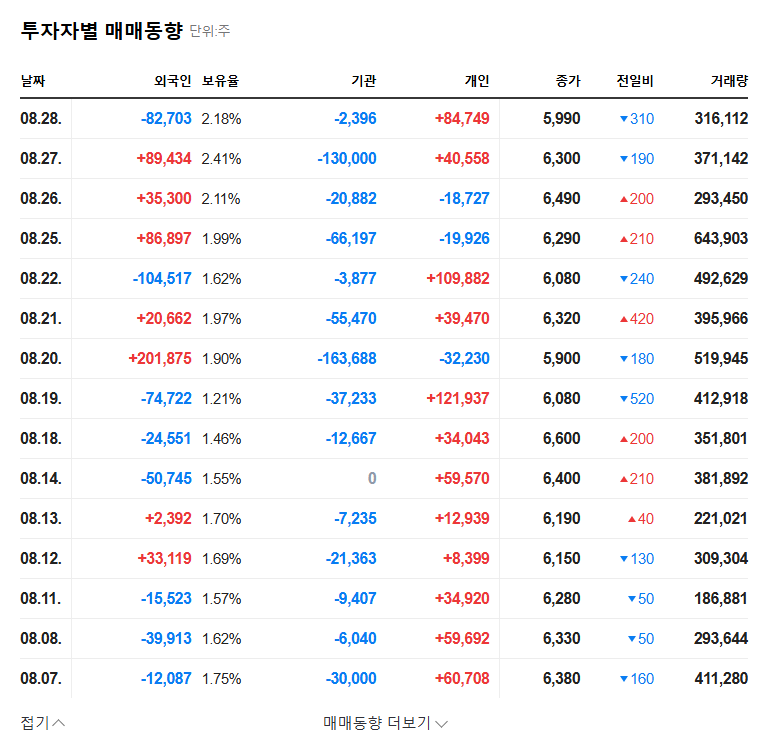
1. What Happened?
On September 25, 2025, Kim Jong-ran, a new insider of ABION, purchased a total of 5,000 shares over three days. This slightly increased the stake held by insiders, including CEO Shin Young-ki, from 43.26% to 43.28%. On the same day, a notice of a ‘major contract change’ was also announced, but the specific details have not yet been revealed.
2. Why Is It Important?
Insider stock purchases are generally interpreted as a sign of management’s commitment to strengthening control or confidence in the company’s positive outlook. However, the change in stake is not significant, and there is the uncertainty of the contract change. The impact on the stock price could vary greatly depending on the contract details.
3. So, What Will Happen?
Positive Scenario: If the contract change positively impacts ABION’s business expansion or profitability, it could serve as momentum for a stock price increase. The insider’s stock purchase could support this positive outlook.
Negative Scenario: Conversely, if the contract details are more negative than expected, or if it doesn’t lead to an improvement in the company’s fundamentals, it could negatively impact the stock price. ABION is currently experiencing continuous operating and net losses, so generating actual profit is crucial.
4. What Should Investors Do?
- Wait for further announcements regarding the details of the ‘major contract change’.
- Continuously monitor changes in ABION’s fundamentals, including pipeline development, clinical trial results, and licensing-out possibilities.
- Develop an investment strategy with a mid- to long-term perspective, not swayed by short-term stock price fluctuations.
Q: Who is Kim Jong-ran?
A: Kim Jong-ran has been registered as a new insider of ABION through this large shareholding report. Further information on her exact identity and relationship with ABION needs to be confirmed through additional disclosures.
Q: What are the specific details of the ‘major contract change’?
A: They have not been disclosed yet. This information will be available through future announcements.
Q: What are ABION’s main pipelines?
A: ABION’s main pipelines are the c-MET inhibitor ABN401 and the Claudin3 targeted pipeline ABN501.




